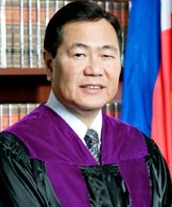MANILA, Philippines—The Securities and Exchange Commission (SEC) position allowing corporations to operate a public utility with 40 percent voting stock owned by foreigners and 60 percent non-voting stock owned by Filipinos is a violation of the Foreign Investments Act (FIA) of 1991, a Justice of the Supreme Court said Tuesday.
Senior Associate Justice Antonio Carpio told the SEC, represented by Commissioner Manuel Huberto Gaite, during an oral argument held in Baguio City that its opinion that “60 percent nonvoting stock of Filipinos and 40 percent voting stock of foreigners are okay, is a violation of the Foreign Investment Act.”
“FIA and other laws say 60 percent voting stock must be owned by Filipinos,” Carpio said.
Another Associate Justice, Maria Lourdes Sereno, asked SEC to clarify the statement made by former Finance Secretary Margarito Teves that the 11 members of the Philippine Long Distance Telephone Company board were elected by foreigners.
Sereno said it needed to be clarified because the statement of Teves is disconcerting.
“We want to know if the mechanisms in place are enough to protect the Filipino interest,” Sereno said.
The high court, in its June 2011, decision said that the SEC neglected its duty to see to it that the term “capital” is implemented in companies like the PLDT.
The term “capital,” according to the Supreme Court, refers only to shares of stock entitled to vote in the election of directors and thus refers only to common shares and not to the total outstanding capital stock composed of “common” or voting shares and “preferred” or non-voting shares.
SEC sided with the PLDT, contrary to the position of the government, saying that it has consistently construed and applied the term “capital” in its commonly accepted usage—“the sum total of the shares subscribed irrespective of their nomenclature and whether they are voting or non-voting.”
The SEC maintained that what matters is that the board must be composed of 60 percent Filipinos.
During the oral argument, PLDT lawyer Victor Lazatin said that Filipinos still control the company even if foreigners own 64 percent of its common shares.
